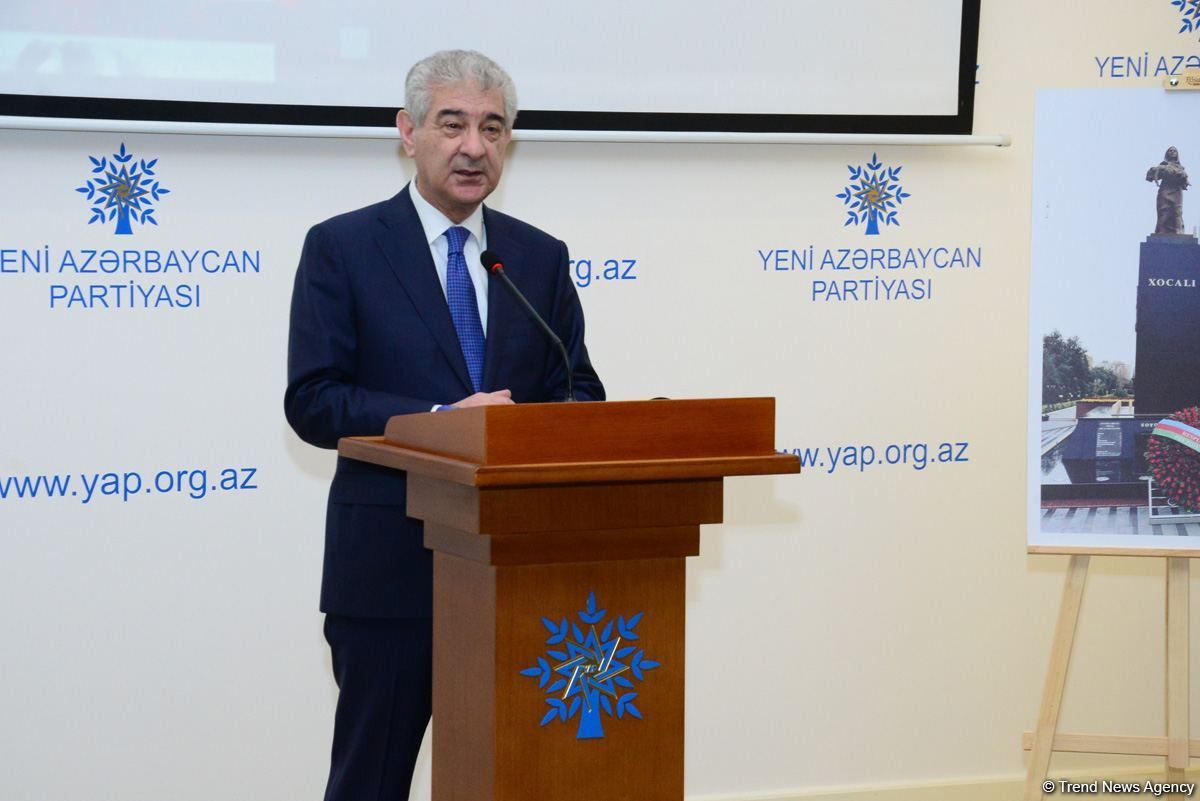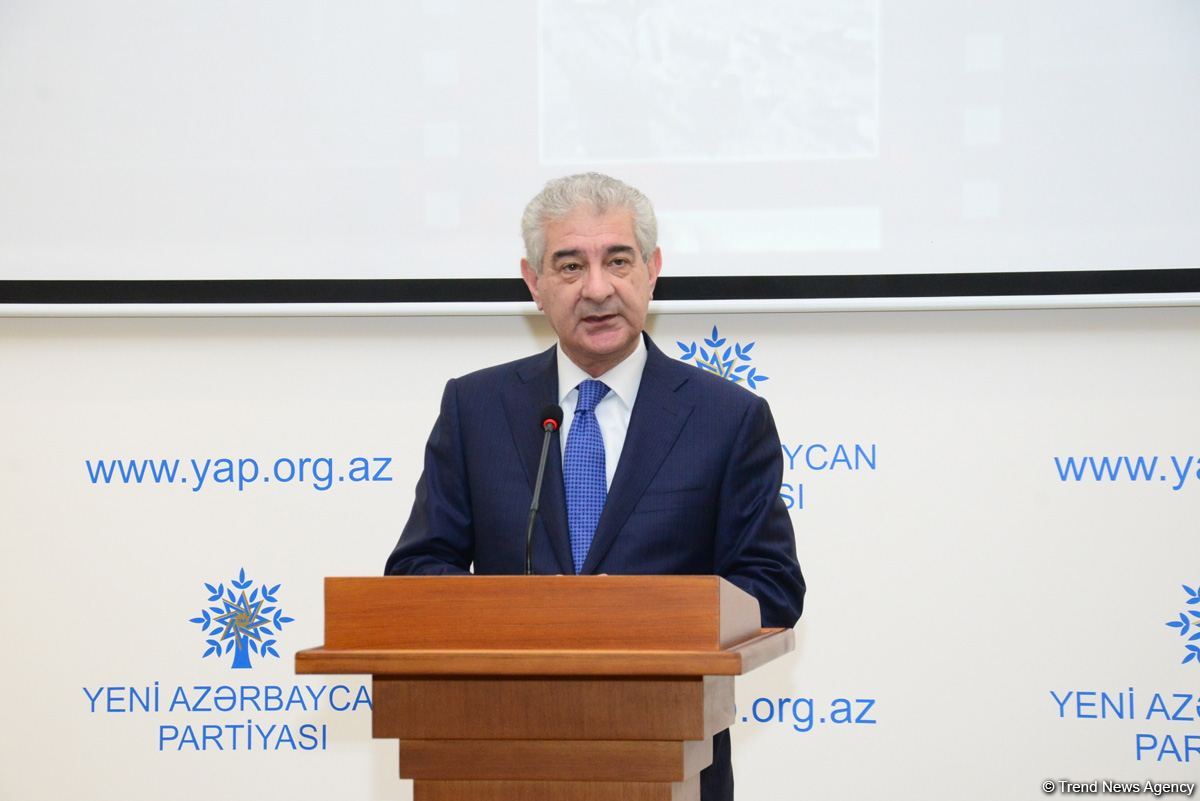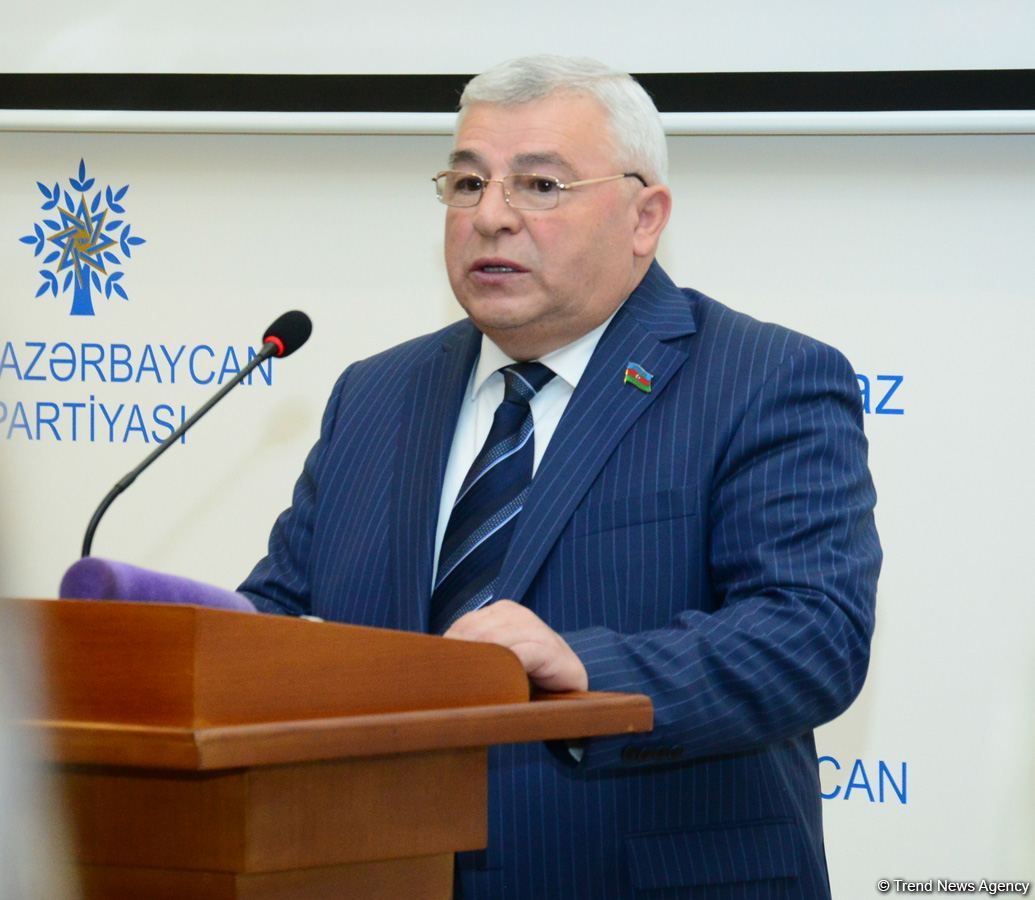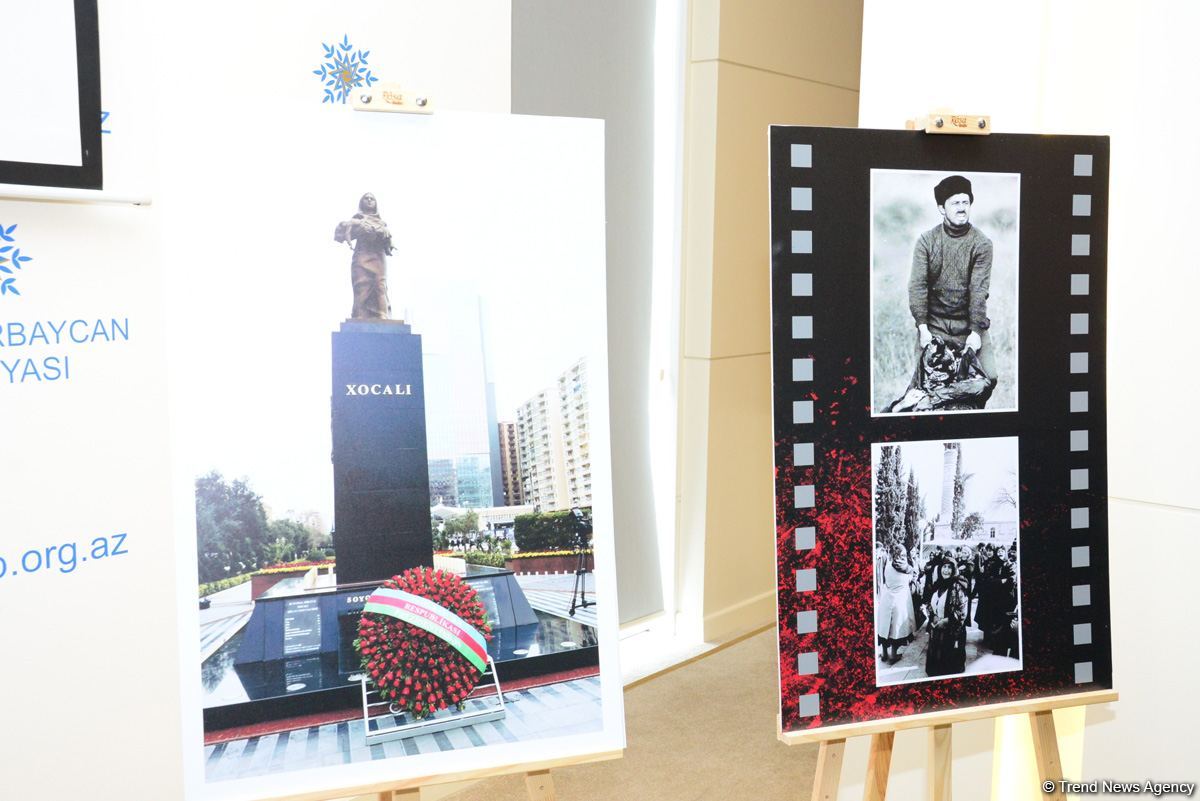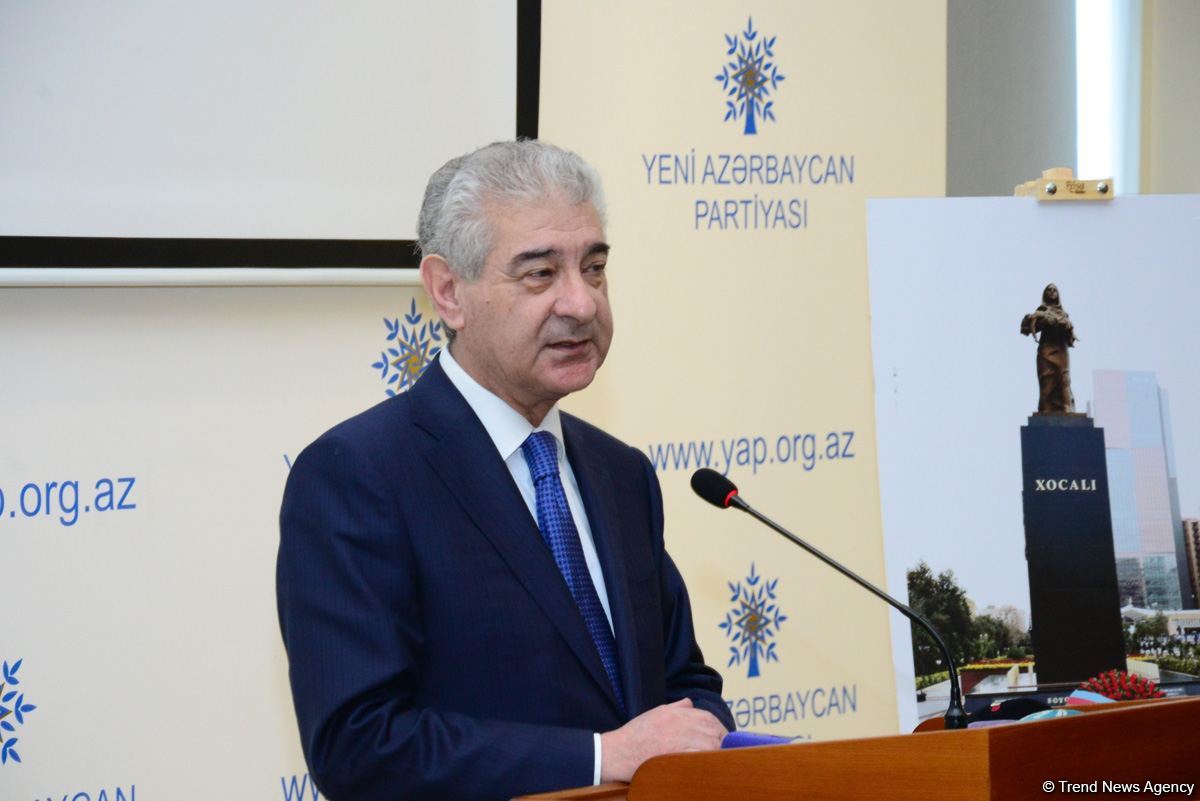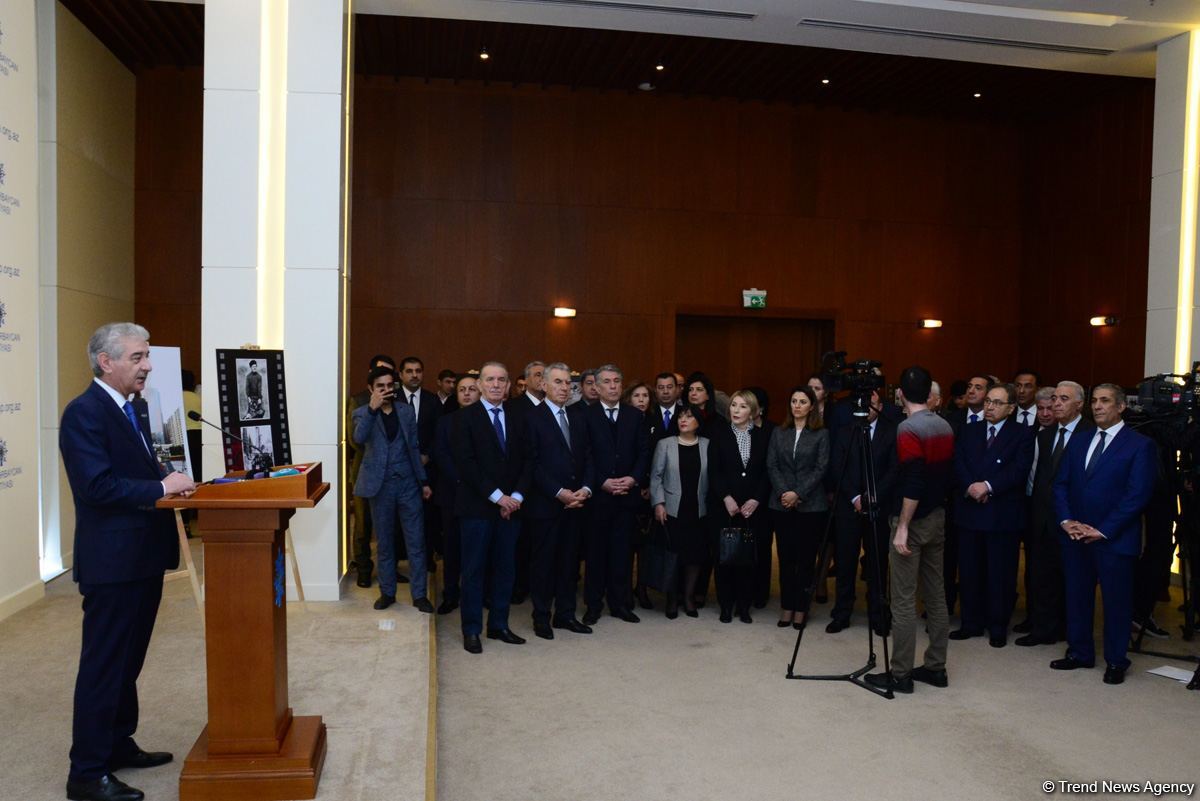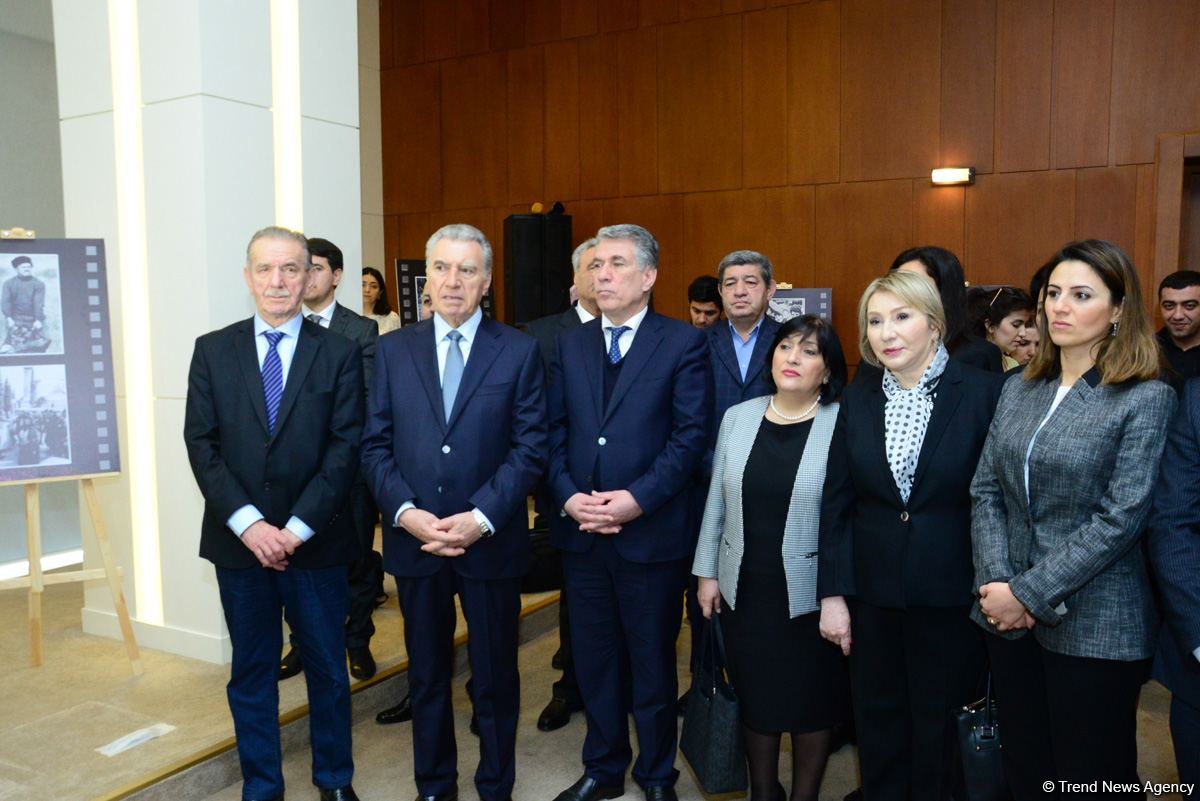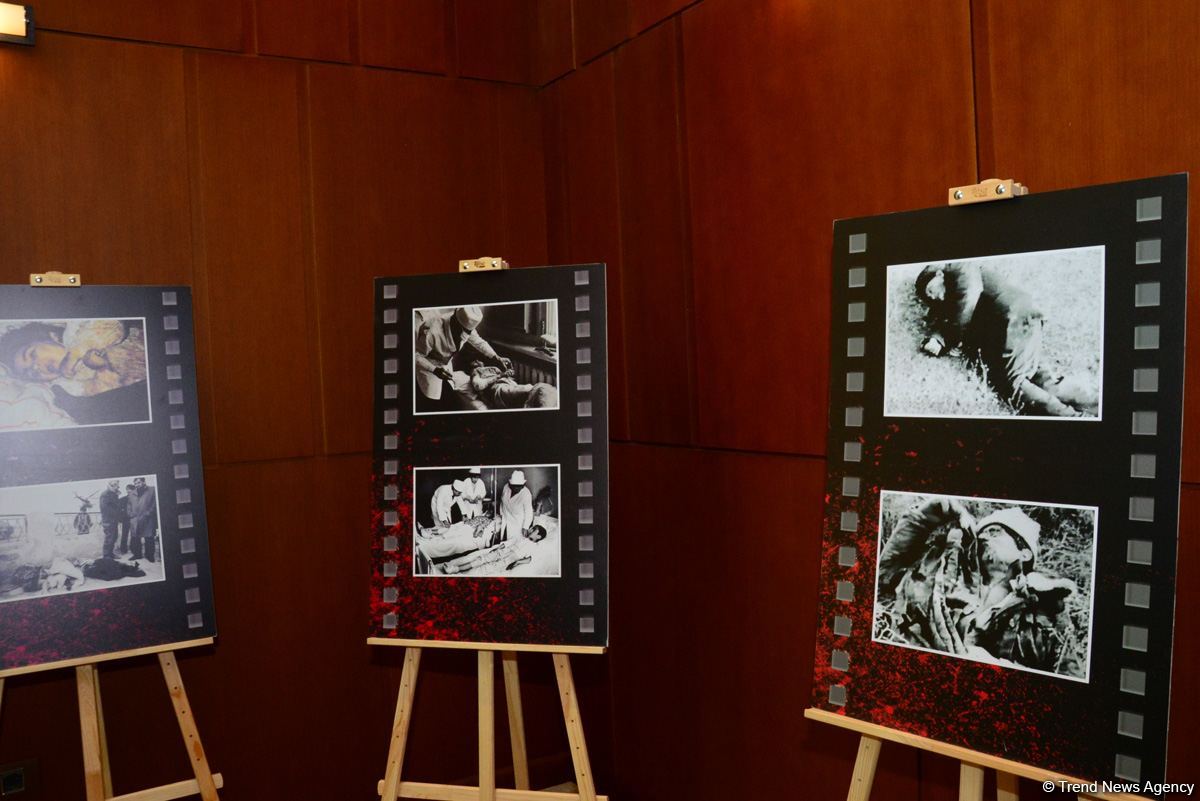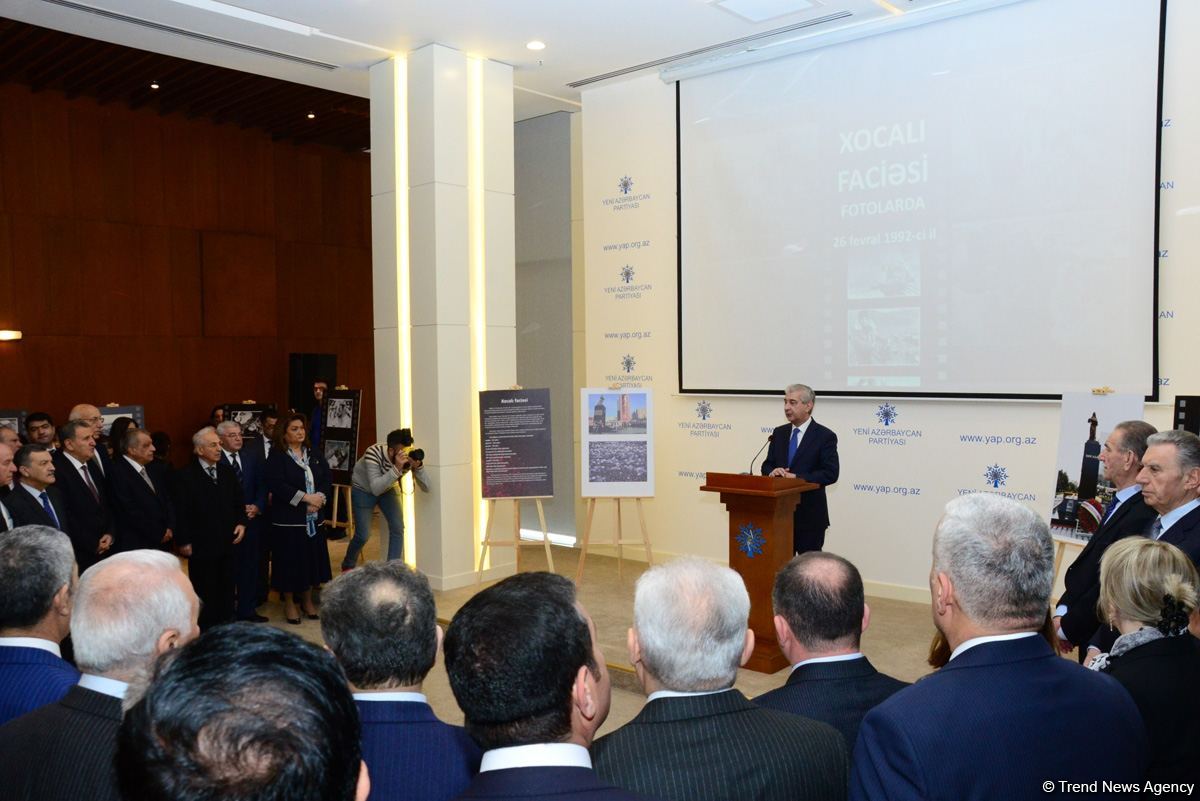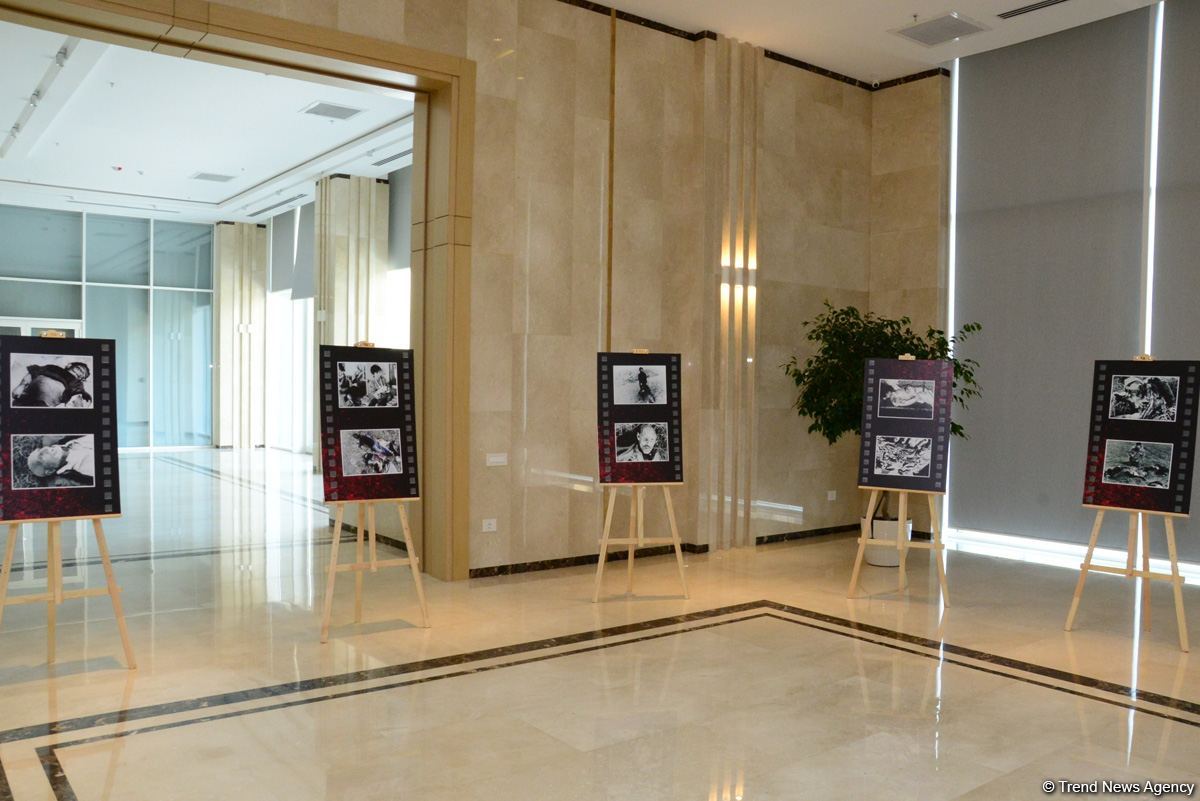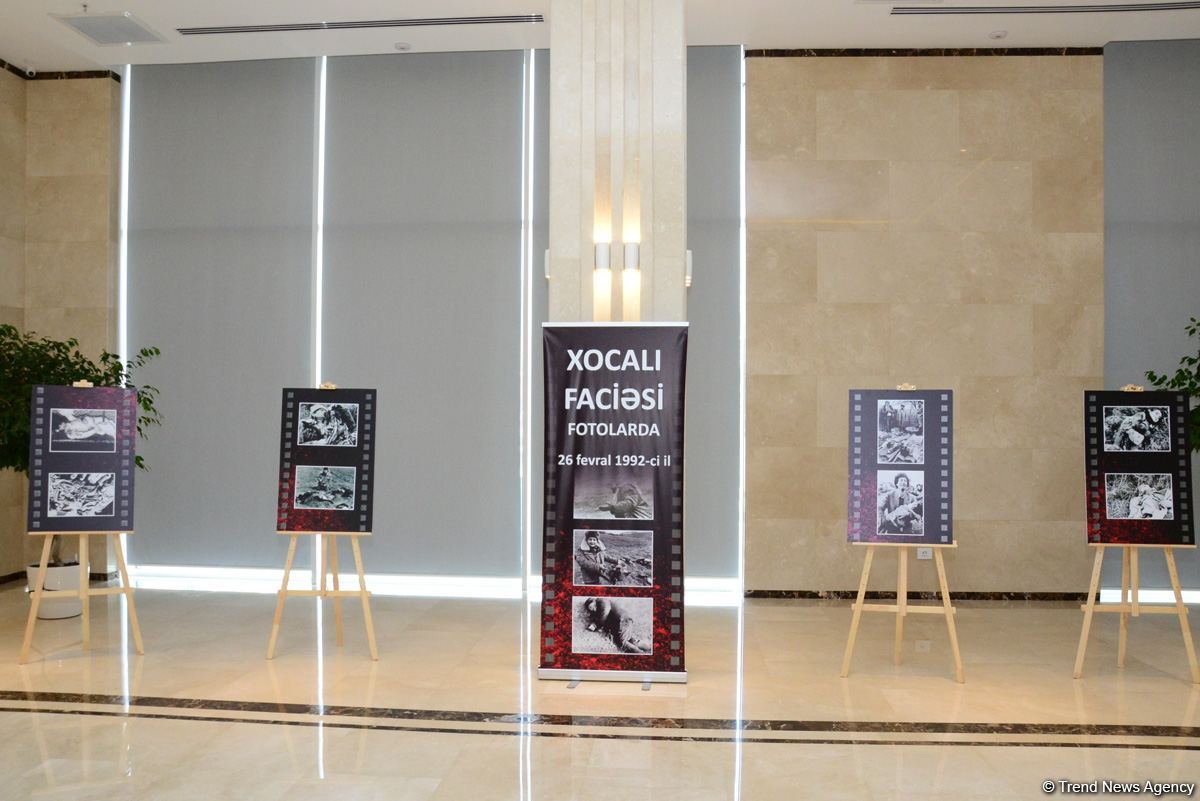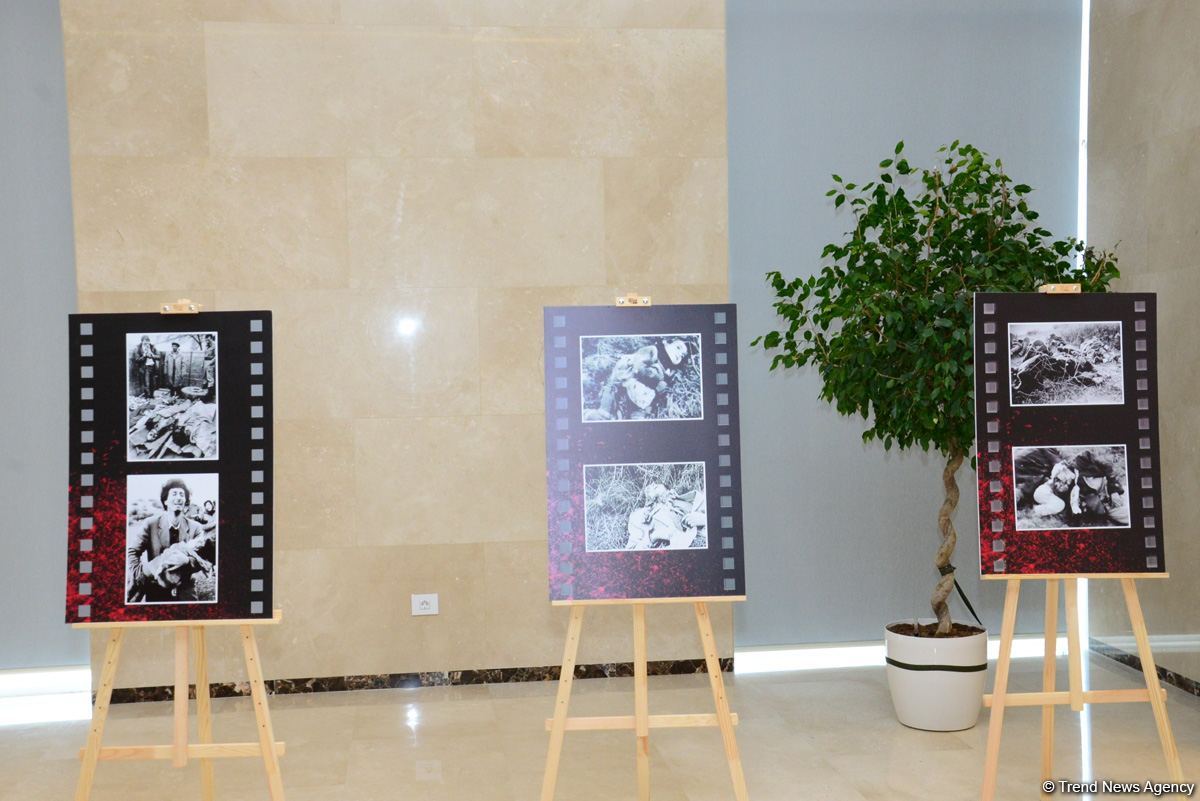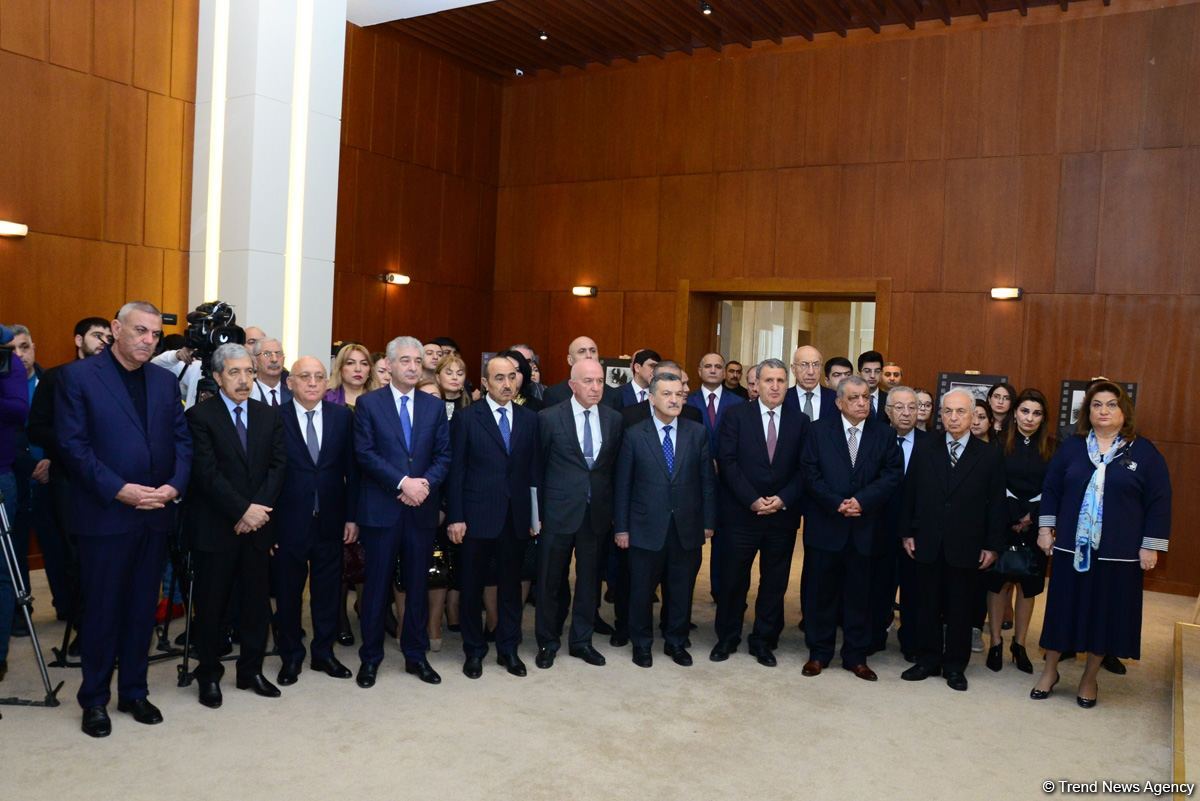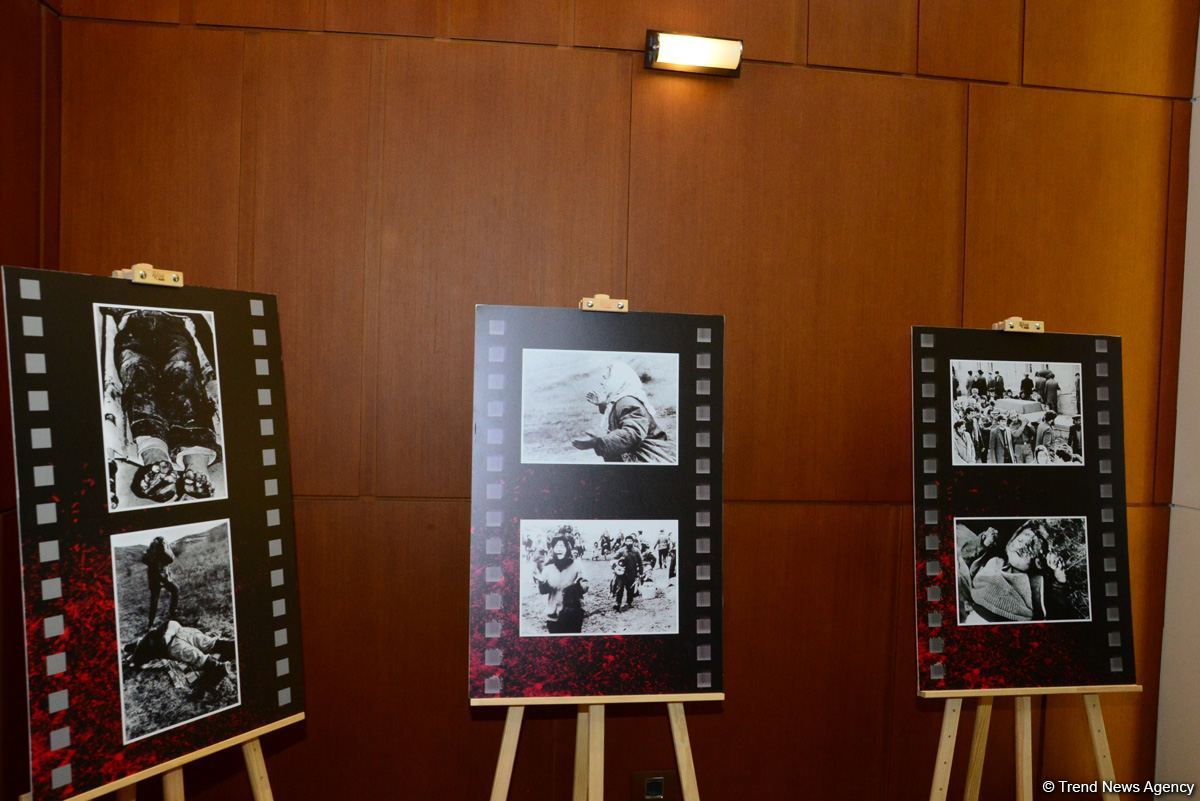BAKU, Azerbaijan, Feb. 26
By Elchin Mehdiyev - Trend:
The Khojaly genocide is one of the most terrible, bloody and cruel tragedies in the history of the Azerbaijani people, deputy prime minister, Deputy Chairman - Executive Secretary of the ruling New Azerbaijan Party (YAP) Ali Ahmadov said at an event in Baku dedicated to the 28th anniversary of the Khojaly tragedy, Trend reports.
The deputy prime minister added that the people killed during the Khojaly massacre were civilians.
“In particular, 613 people that were killed included children, women, old people, that is, civilian population that didn’t pose any threat to the enemy side,” Ahmadov noted. “The Khojaly tragedy is also one of the most serious crimes ever committed against humanity. Brutal massacre of the elderly, children and women, abuse and mutilation of corpses means that this is atrocity, a crime against humanity.”
“We clearly consider the Khojaly tragedy as genocide,” said the deputy prime minister. “These people were killed because they were Azerbaijanis. The Azerbaijani people didn’t forget, doesn’t forget and will never forget this genocide. The Khojaly genocide became blood memory of the Azerbaijani people, and at all subsequent stages of history it will live in the memory of the people as the bloodiest tragedy.”
The deputy prime minister emphasized that large-scale work is being done for recognition of the Khojaly tragedy as genocide by the international community.
In particular, as a result of activities within the “Justice for Khojaly!” campaign, the Khojaly tragedy has already been recognized as genocide in a number of countries, added Ahmadov.
“In general, we are facing important tasks in the direction of wider recognition of the Khojaly tragedy as genocide,” the deputy prime minister said. “The most worrying point in connection with this tragedy is that the people who committed this crime didn’t suffer due punishment. Moreover, in some cases they even stated they are proud of their deeds. It should be noted with regret that international organizations haven’t yet taken the appropriate measures against those who committed the Khojaly genocide.”
In turn, Azerbaijani MP Elman Mammadov said that today is a hard day for all Khojaly residents.
“This is because it was the last day for Khojaly. We didn’t know 28 years earlier that Feb. 25 would be the last day of Khojaly, because the then leadership of the republic said 'Don’t be afraid, hang in there, we will arrive for help tomorrow”, Mammadov noted. “Khojaly lived in a siege for four months, since Nov. 1, 1991, and the town's occupation continues till the present day. However, the leadership of that time was preoccupied by a power struggle and our calls remained unanswered. We received nothing but promises. As a result of the struggle for power in Baku, the enemy gained the opportunity and committed the planned genocide. There wasn’t a single settlement inhabited by Azerbaijanis around Khojaly. The city was left alone.”
The MP added that for the first time the Khojaly genocide was recognized in the world thanks to the efforts by national leader Heydar Aliyev.
“Today, these events have gained wide coverage,” said the MP. “A number of states have recognized the Khojaly tragedy as genocide at various levels. A part of the international community is turning a blind eye to the Khojaly genocide, as well as the occupation of 20 percent of Azerbaijani territories. That’s why the occupying country hasn’t been duly punished. We should become stronger in order to free our lands from occupation and to ensure that the aggressor receives proper punishment.”
The conflict between the two South Caucasus countries began in 1988 when Armenia made territorial claims against Azerbaijan. As a result of the ensuing war, in 1992 Armenian armed forces occupied 20 percent of Azerbaijan, including the Nagorno-Karabakh region and seven surrounding districts.
During the Karabakh war, on Feb. 25-26, 1992, the Armenian armed forces, together with the 366th infantry regiment of Soviet troops, stationed in Khankendi, committed an act of genocide against the population of the Azerbaijani town of Khojaly. As many as 613 people, including 63 children, 106 women and 70 old people were killed in the massacre. Eight families were totally exterminated, 130 children lost one parent and 25 children lost both. Some 1,275 innocent residents were taken hostage, while the fate of 150 people still remains unknown.
The 1994 ceasefire agreement was followed by peace negotiations. Armenia has not yet implemented four UN Security Council resolutions on withdrawal of its armed forces from Nagorno-Karabakh and the surrounding districts.

